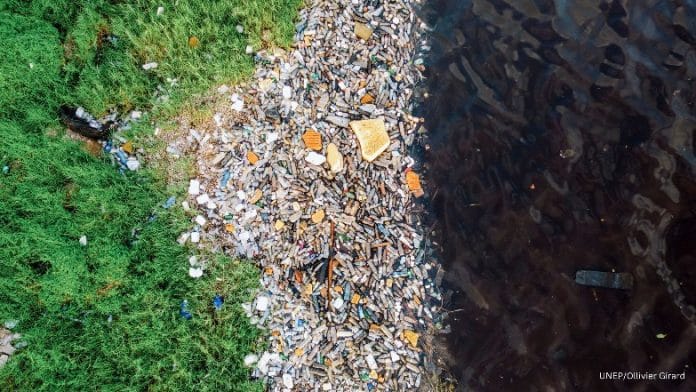Since Monday, a key meeting on plastic pollution has been taking place in Paris at the UNESCO headquarters.
“This is a once in a planet opportunity,” said Inger Andersen, Executive Director of the United Nations Environment Programme (UNEP).
The meeting follows a historic resolution adopted in March 2022 at the United Nations Environment Assembly in Nairobi, which aims to end plastic pollution and develop a legally binding international agreement by 2024.
In Paris, and until Friday, a thousand delegates from 175 countries and more than 1500 scientists and representatives of civil society and industry are discussing an ambitious text which proposes strengthening international legislation to limit plastic production. The proposals include banning the production of certain types of plastic; strengthening waste treatment and improving recycling.
By 2040, plastic pollution could be reduced by 80% if countries and companies make profound changes, according to a recent UNEP report. The solution is a circular approach: reduce, reuse, recycle, reorient, and diversify.
Buried under waste
Every year, we produce 430 million tonnes of plastic, a third of which is used only once.
If we continue on this path, plastic production will triple by 2060. Plastic could therefore generate 19% of global greenhouse gas emissions by 2040.
Plastic is made from fossil fuels and contributes to exacerbating the climate crisis.
Islands of plastic in the oceans
The equivalent of 2000 garbage trucks are dumped every day into oceans, rivers, and lakes.
Up to 12 million tonnes of plastic are discarded each year in the oceans and “plastic islands” are multiplying.
While most plastics are expected to remain intact for decades or centuries after their use, those that erode end up in the form of microplastics, consumed by fish and other marine species, quickly making their way into the global food chain. Microplastics have been found everywhere, from the Arctic to the Swiss mountains, in tap water and in human faeces.
“We are working against the clock. We have to end plastic pollution,” underlined Ms Andersen. “We’ve got to see progress; we’ve got to see ambition. Let’s get it done because we can, and because we are on this planet together.”
Additional information:
- EU calls for agreement on global rules to end plastic pollution, 26 May
- On 5 June we celebrate World Environment Day – learn more with the links below.
-
-
- World Environment Day website
- World Environment Day | United Nations
- Practical Guide: Get Solutions
- Events: Get Involved
- Hashtags:
#BeatPlasticPollution
#WorldEnvironmentDay
-

